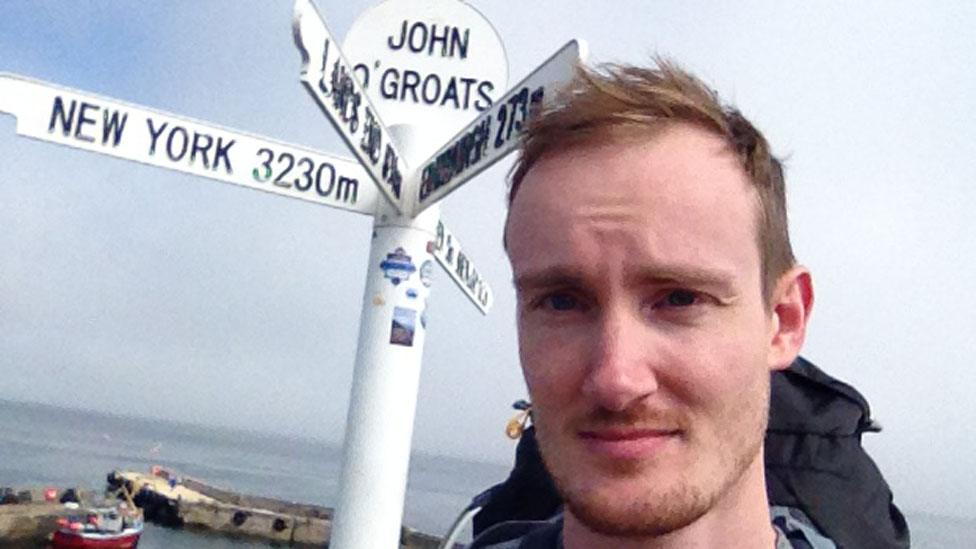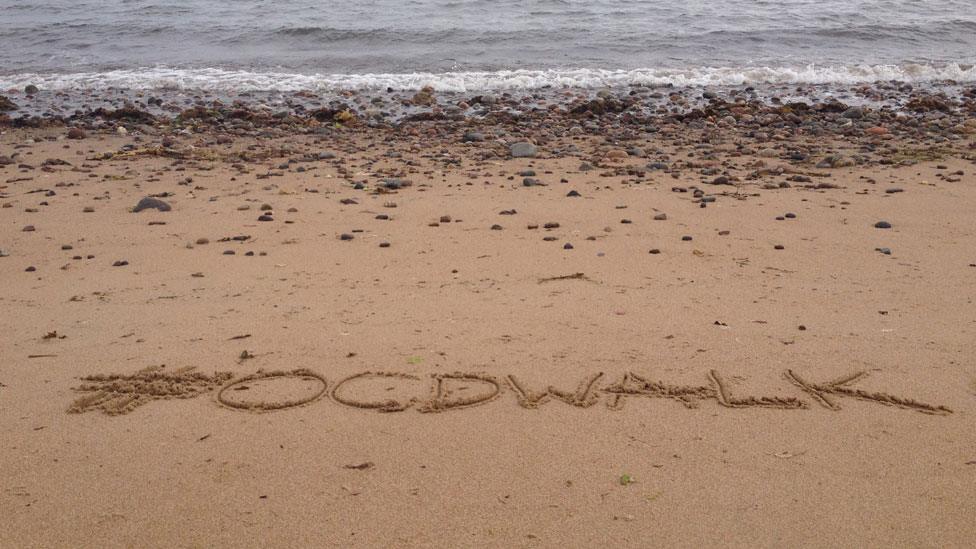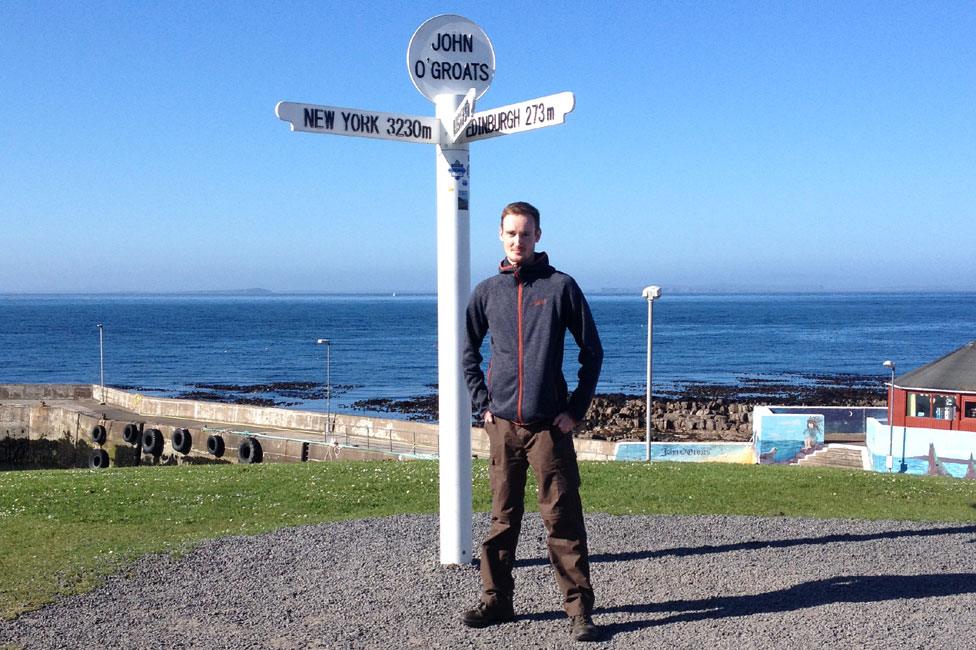Dealing with OCD on walk from John O' Groats to Land's End
- Published

Mr Clancy said the trek has been physically and mentally challenging
Like thousands of other people, Tom Clancy is tackling the well-trodden 1,200-mile trek between John O' Groats to Land's End for charity.
But for the 31-year-old, from Cheltenham, sore feet can be the least of his problems. He has obsessive compulsive disorder (OCD), a condition that can leave him paralysed with fear.
Tom has had OCD for many years but the past 11 have been the hardest for him in terms of coping with the illness.
A trigger for this difficult period was memories of a magazine article about incurable sexually transmitted diseases he read in his teens.
The concerns these memories raised, at a time when he was less informed about STDs than he is now, caused him to avoid some public spaces and to obsessively wash his hands.
However, his OCD also involves "intrusive thoughts". Unsettling ideas pop up in his head which cause him crippling feelings of anxiety and fear.
"December 2014 and on into 2015 was unquestionably the worst period of my life," says Tom.
"I have never attempted suicide, but at that point in time I was so utterly petrified by the intrusive thoughts permanently inside my head - and what they might mean - that I wondered if I might be better off dead than continuing to live like this."

What is OCD?
It is a serious anxiety-related condition where a person experiences frequent obsessive thoughts, according to the charity OCD UK.
The illness affects as many as 12 in every 1,000 people, including children, and often involves repetitive compulsions, impulses or urges.
OCD UK says there are various forms of the illness, but typically a person living with it fall into four main categories.
These categories involve repetitive checking, concerns about contamination, hoarding and intrusive thoughts. The last involves "obsessional thoughts that are repetitive, disturbing and often horrific and repugnant in nature", says the charity.


Mr Clancy has dubbed his trek the OCD Walk
Tom was at university when the worst of his OCD was occurring.
He says: "I'd experienced deeply unsettling thoughts before - I hadn't known they were called intrusive thoughts at the time - but never to this degree. Fear and anxiety consumed me. I was so afraid.
"It was all I could think about and my thoughts spiralled out of control.
"A week later and I was having to end a relationship with someone who'd felt like the best thing to happen to me in a long time. Two weeks after that and I'd decided I was going to have to leave my studies - which meant having to leave my accommodation and housemates."
'Just let go'
Tom had sought help previously, but the visit he made to a GP following this episode led to what he describes as a "life-changing phone call" from NHS service 2Gether.
A member of the service helped him to begin phases of cognitive behavioural therapy (CBT).
"CBT teaches you to try and just let go of the thought," says Tom. "That it is just that, a thought.
"I find it very hard because OCD feeds off of doubt, you question yourself.
"Another factor for dealing with OCD is exposure. This can either be making yourself do the things you're scared to do, or trying not to avoid situations that produce the fear and anxiety - instead sit with the anxiety until it passes."
Exposure is the situation Tom now finds himself in as he walks the hundreds of miles to Land's End in Cornwall. Though a keen walker, it is the first time he has tackled the route, or walked so far.
He started out on his trek, which he calls the OCD Walk and is raising funds for charity, six days ago.

End to Enders

It has been estimated that up to 6,000 people tackle the route from John O' Groats to Land's End - or the other way around - each year.
Many do it to raise money for charity.
Known as End to Enders, large numbers of the those who do the route walk or cycle it.
However, other charity efforts have involved travelling on motorised bar stools, skateboards and mobility scooters.

Tom says: "The last six days have been the most painful I've ever experienced in terms of physical pain and having to find the mental strength to keep going.
"I had a really good day yesterday, but I have to say day five was quite a low day and I was having intrusive thoughts.
"I was thinking bad, horrible things about myself. Anyone who lives with OCD will know how bad those intrusive thoughts can be."
He adds: "The walk itself is a challenge for me. But in terms of my OCD, camping and using public toilets and showers are throwing up challenges which I'm having to push through."

Tom Clancy at John O' Groats
Messages of support he is receiving on social media are helping him cope with the stresses of the challenge, he says.
During his trek, Tom also plans to walk to the summits of Britain's three highest peaks - Ben Nevis near Fort William, Scafell Pike in the Lake District and Snowdon in Snowdonia.
He says: "I am hoping that others living with OCD might like to join me on the climbs, but if no-one turns up that'll be okay.
"What I do hope is that other people with OCD find out about my walk and find someone to listen to them.
"When you first encounter OCD it can feel like you are going crazy."